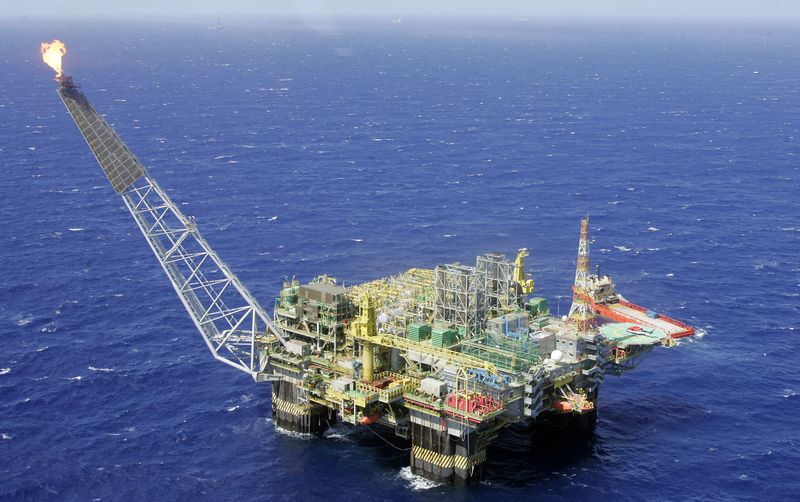By Ariba Shahid and Asif Shahzad
ISLAMABAD (Reuters) -Pakistan paid for its first government-to-government import of discounted Russian crude in Chinese currency, the South Asian country’s petroleum minister said on Monday, a significant shift in its U.S. dollar-dominated export payments policy.
Discounted crude offers respite as Pakistan faces an acute balance of payments crisis, risking a default on its debt obligations. The foreign exchange reserves held by the central bank are scarcely enough to cover four weeks of controlled imports.
The first cargo of discounted Russian arranged under a new deal struck between Islamabad and Moscow earlier this year arrived in Karachi on Sunday. It is currently being offloaded at the port in the southern city of Karachi.
Petroleum Minister Musadik Malik, talking to Reuters by phone, did not disclose the commercial details of the deal, including pricing or the discount that Pakistan received, but said the payment was made in Chinese currency.
He said the purchase, Pakistan’s first government-to-government (G2G) deal with Russia, consisted of 100,000 tonnes, of which 45,000 tonnes had docked at Karachi port and the rest was on its way. Pakistan made the purchase back in April.
Pakistan’s purchase gives Moscow a new outlet to add to growing sales to India and China, as it redirects oil from western markets because of the Ukraine conflict.
Despite being a long-standing Western ally and the arch-rival of neighbouring India, which historically is closer to Moscow, analysts say the crude deal also presents a new avenue for Pakistan at a time that its financing needs are great.
Pakistan’s Refinery Limited (PRL) will initially refine the Russian crude, the minister said. He had earlier referred to the purchase of the shipment as a trial run to judge financial and technical feasibility.
Malik on Monday played down concerns around the financial viability and concerns about the ability of local refineries to process Russian crude given the South Asian country’s historical importation of Middle Eastern petroleum products.
“We’ve run iterations of various product mixes, and in no scenario will the refining of this crude make a loss,” Malik said, adding, “We are very sure it will be commercially viable.”
“No adjustments (were) needed at the refinery to refine the Russian crude,” the minister told Reuters.
Energy imports make up the majority of the Pakistan’s external payments. Islamabad imported 154,000 bpd of oil in 2022, around steady with the previous year, data from analytics firm Kpler showed.
The crude was predominantly supplied by the world’s top exporter Saudi Arabia followed by the United Arab Emirates. The 100,000 bpd from Russia in theory greatly reduces Pakistan’s need for Middle Eastern fuel.
Read the full article here




